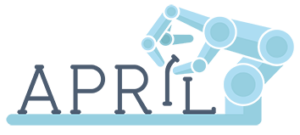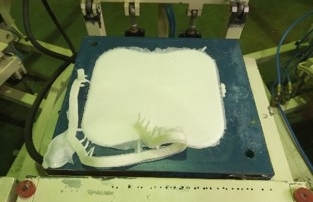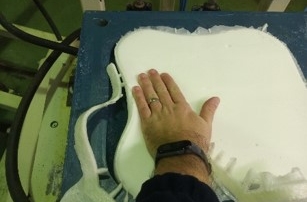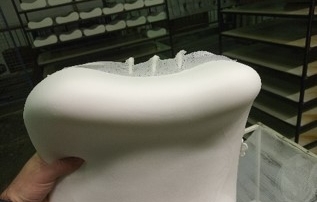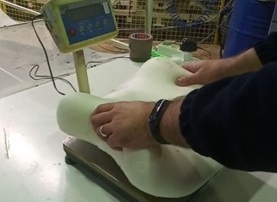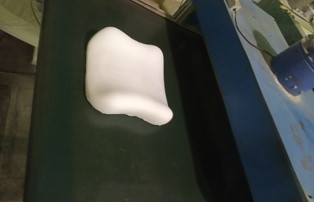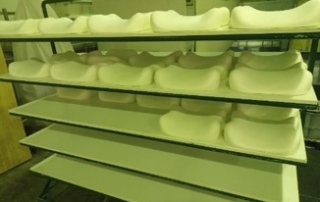The goal of this use case is to establish a safe and efficient collaboration between robots and workers at PEMU, producer of viscoelastic pillows. Manipulating pillows of different sizes and materials will present the biggest challenge for the robotic manipulator. Introducing a robot into the workflow will lead to faster operation and improved quality monitoring.
Among the challenges faced within the demonstration, the starting point was to acknowledge that physical contact or direct interaction with dangerous moulds takes place in a continuous and repetitive cycle. Such activities can yield to lack of attention which can be hazardous when working with dangerous machines such as a production machine. Further danger is related to a possible failure of the machine, which in that case can harm the worker. Reduction of the worker’s contact with chemical products and releasing from the uncomfortable working conditions, allied with boring and repetitive tasks will be an additional advantage. Foster worker’s healthy habits at the workplace by avoiding potentially harmful activities and allowing them to add new skills to be able to efficiently interact with the robotic arms and hands.
For the product, any excess during handling the pillows either while its location around the production machine or while its visual inspection and classification, can yield to a product rejection due to physical damage, deformations, etc. Therefore, those actions shall be as short as possible. – APRIL will automate critical processes such as quality control, understood as visual inspection, weight measurement and pillow classification, to avoid product rejection, re-manufacturing and, ultimately, to improve customer satisfaction. It will also yield an increment of production and replace workers in repetitious and monotonous actions, who can be relegated to other tasks. The inspection will be documented product by product. The information will be stored and used in case of quality complaints from customers.
The results achieved in the project were satisfactory for PEMÜ. The robot gripper developed by the project members was able to handle the movement of the deformable viscoelastic pillows, which had been difficult to handle until now. Universal and standard handling concept for very deformable products. The system is capable of handling and quality control of two types of pillows. Grasp stability based on force sensors was sufficient. The surface defects to be determined are recognized by the quality control module or based on checking the pre-set weight values, it can determine which is the appropriate (OK) or which is the wrong pillow (NOK). Communication with the system is done using hand signals.
Due to the serial production of the product, thanks to the rotating table production, we were not able to integrate it in the production environment. The production site cannot be shut down, production does not operate intermittently
